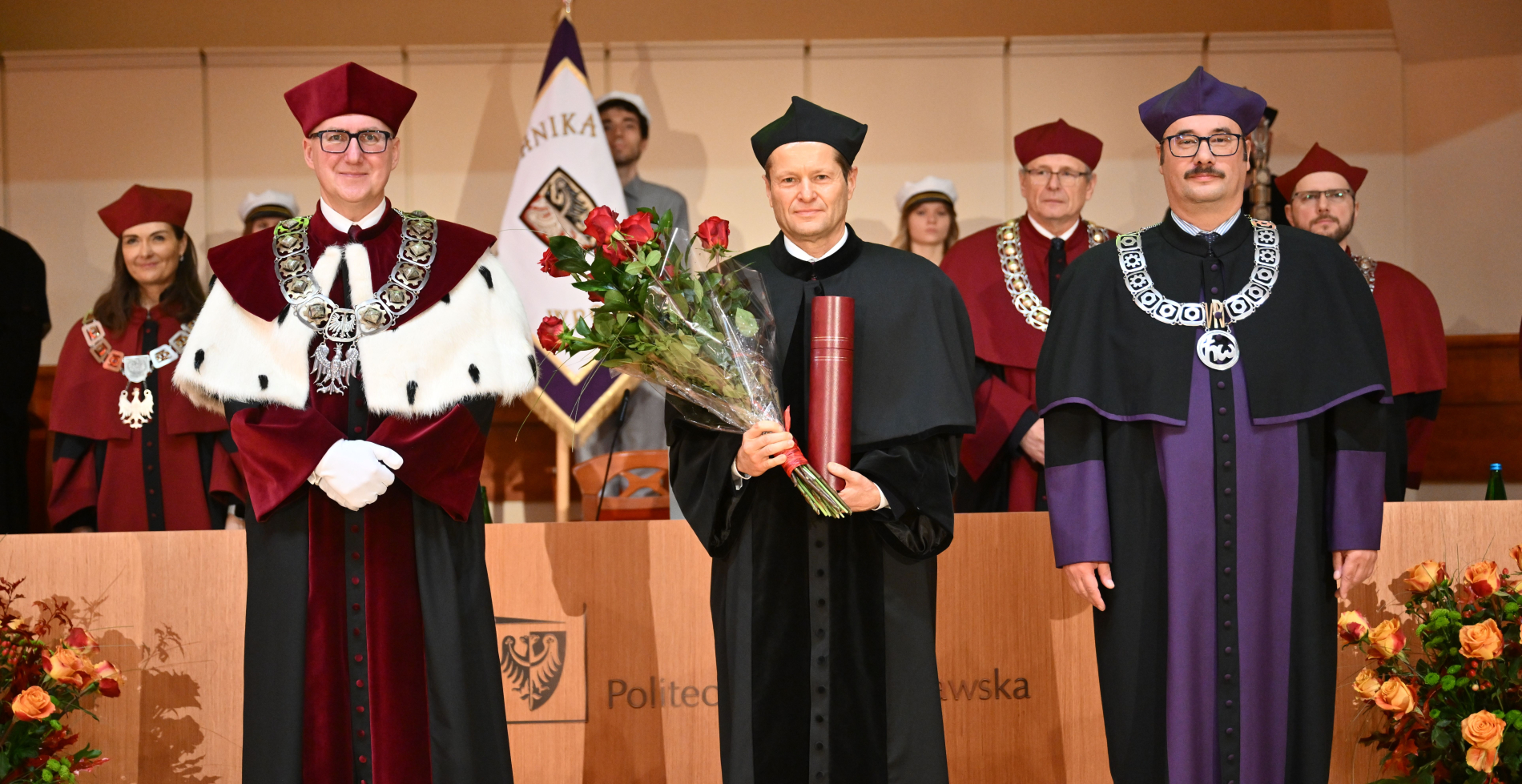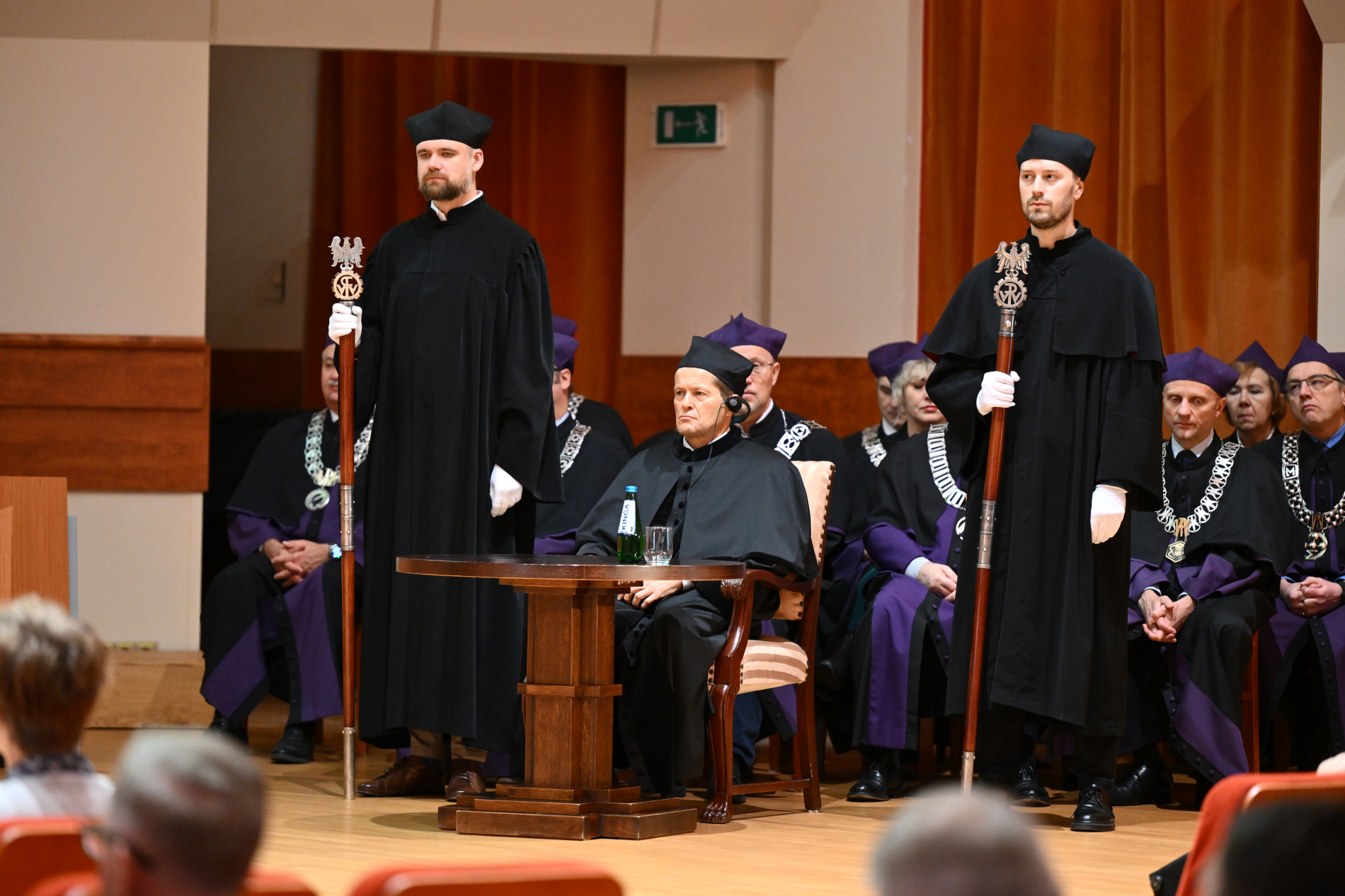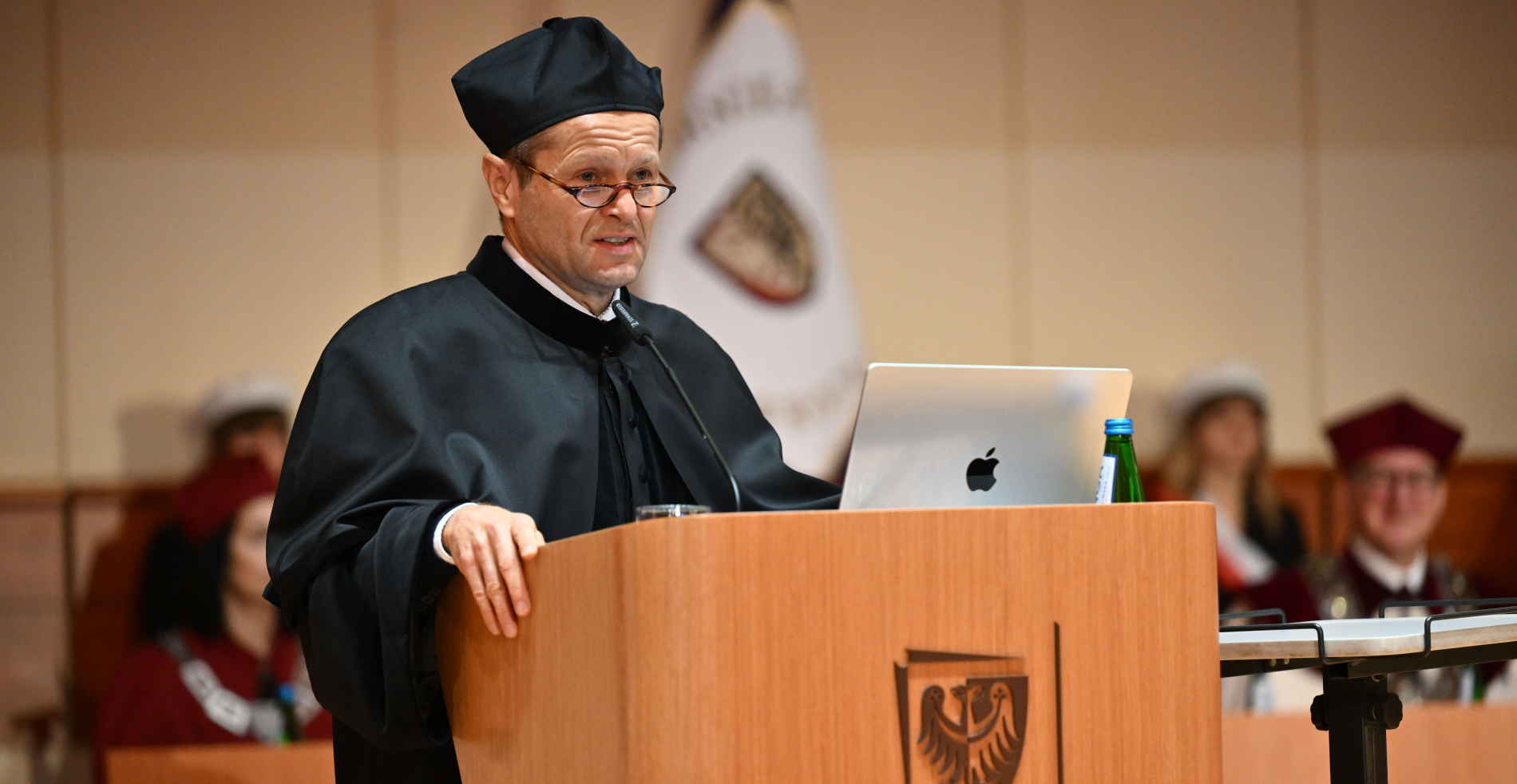YOUR BROWSER IS OUT-OF-DATE.
We have detected that you are using an outdated browser. Our service may not work properly for you. We recommend upgrading or switching to another browser.
Date: 15.11.2024 Category: general news, university life

Prof Ferenc Krausz, distinguished scientist, director of the Max Planck Institute for Quantum Optics, creator of attosecond physics and winner of the 2023 Nobel Prize in Physics, has been awarded an honorary doctorate from Wrocław University of Science and Technology.
The title bestowed on the Hungarian researcher during the Celebration Day of the Wrocław Tech is in recognition of his outstanding achievements for world science. In particular, for Prof. Krausz's development of experimental methods for the generation and measurement of light pulses of attosecond duration to study the dynamics of electrons in matter. In addition, his long-standing and close cooperation with the scientific community of the Wrocław University of Science and Technology was recognised.
 Professor Rafał Walczak, Dean of the Faculty of Electronics, Photonics and Microsystems, was the promoter of the honorary doctorate.
Professor Rafał Walczak, Dean of the Faculty of Electronics, Photonics and Microsystems, was the promoter of the honorary doctorate.
In November 2023, Prof Krausz was a guest at the Interdisciplinary Science Seminar of the Wrocław University of Science and Technology. At our university, he gave a lecture entitled ‘Attosecond Science: from accelerating electronics to studying human health’.
The scientist's visit was combined with the official launch of a special research group at the Wrocław Tech as part of the prestigious Max Planck Partner Group programme. The leader of the team, specialising in the construction of ultrafast lasers, is Maciej Kowalczyk, PhD from the Faculty of Electronics, Photonics and Microsystems, who collaborated with Prof Krausz on a postdoctoral fellowship in Germany in 2020-22.
- Prof. Ferenc Krausz is therefore deeply and sincerely interested in the long-term continuation and revitalisation of the collaboration, especially in the field of ultrashort pulse lasers in the mid-infrared. His passion for years has been the detection of cancer cells in plasma using precisely these ultrashort laser pulses. If this programme is successful, it will be another milestone in world science, no doubt worthy of the next Nobel Prize,’ - said Prof. Rafał Walczak.
During the ceremony, Prof Ferenc Krausz gave a lecture entitled ‘Basic research addressing greatest challenge of our time’.
- Thank you very much for this award. It is a great pleasure and honour for me. In my speech, I would like to touch on the future of Europe and its competitiveness in terms of research and innovation. Professor Arkadiusz Wójs has already spoken about these issues in his speech, and I would like to add my thoughts to this, said the Nobel Prize winner. - ‘My presentation is also a praise of basic research, which is the only human activity that leads to breakthroughs that can fundamentally affect our lives,’ he added.
Among the most important challenges facing humanity, Prof Krausz mentioned stopping global warming, preserving biodiversity, sustaining development and protecting the health of all people regardless of the wealth of the country they live in.
 Prof. Dr Ferenc Krausz (born 1962 in Mór/Hungary) earned his degree in Electrical Engineering at the Technical University Budapest (1985).
Prof. Dr Ferenc Krausz (born 1962 in Mór/Hungary) earned his degree in Electrical Engineering at the Technical University Budapest (1985).
He completed his doctorate in Laser Physics at the Technische Universität (TU) Vienna (1991) where he habilitated in the same research field in 1993, took up assistant professorship in 1998 and full professorship in 1999. In 2003 Ferenc Krausz was appointed Director of the Max-Planck-Institute of Quantum Optics (MPQ) in Garching. In October 2004 he became professor at the Faculty of Physics of Ludwig-Maximilians-Universität (LMU) Munich and has since then held the Chair of Experimental Physics – Laser Physics. He is also a scientific director of a Hungarian Center for Molecular Printing.
In a series of experiments performed between 2001 and 2004 his team succeeded in producing and measuring isolated attosecond pulses of light and applying them for the first real-time observation of atomic-scale electronic motions. These achievements earned him the reputation as the co-founder (along with Paul Corkum) of the field of Attosecond Physics, a scientific discipline devoted to real-time observation and control of electron phenomena, as also acknowledged by their selection as 2015 Thomson Reuters Citation Laureates. More recently, he turned his attention to capitalizing on attosecond techniques for disease detection by the molecular fingerprinting of human bio-fluids.
For his contributions to establishing the field of Attosecond Science, Ferenc Krausz was announced as a recipient of the 2023 Nobel Prize in Physics, together with Anne L´Huillier and Pierre Agostini.
In 2022, together with Anne L'Huillier and Paul Corkum, he received two prizes: Wolf Prize in Physics for ‘pioneering contributions to ultrafast laser science and attosecond physics’ and the BBVA Foundation Frontiers of Knowledge Award in Basic Sciences.
Our site uses cookies. By continuing to browse the site you agree to our use of cookies in accordance with current browser settings. You can change at any time.